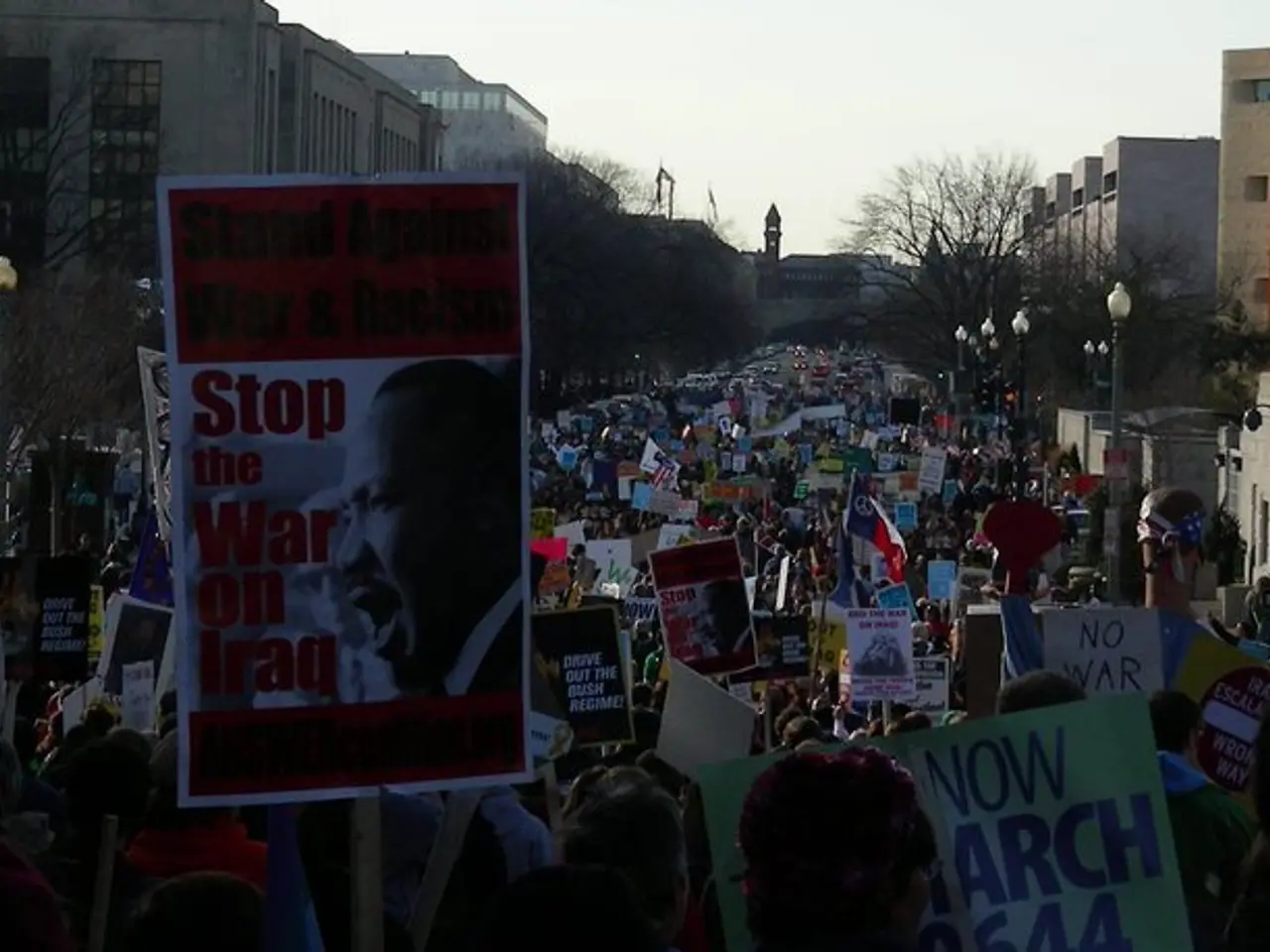Icelandic Protests: A Model for U.S. Demonstrations?
In a world increasingly divided by economic disparity, several countries have employed nonviolent direct action to challenge the dominance of economic elites and strive for shared prosperity and greater equality. Among these are South Africa, Northern Ireland, and South Sudan, as well as less explicit examples in Western Sahara and Ukraine.
South Africa, a historical beacon of nonviolent resistance, saw the dismantling of apartheid through peaceful protests, strikes, and international pressure led by figures like Nelson Mandela and the African National Congress. This struggle for racial and economic equity was a resounding success [4].
Northern Ireland witnessed successful nonviolent protest movements aimed at resolving sectarian conflict and economic disenfranchisement. These movements were part of a broader political struggle with defined goals of equality and shared governance [4].
In South Sudan, local customary authorities and informal economies have sustained nonviolent grassroots resistance, providing alternative justice and mediating conflicts over resources. This foundation for resilience and potentially more equitable governance structures is a fragile yet ongoing process [3].
Other cases, such as Western Sahara and Ukraine, emphasise struggles for peace, human rights, and self-determination but less explicitly tie to pushing economic elites out of dominance or achieving broad shared prosperity [1][2].
While there is no clear, large-scale, contemporary country example of complete economic dominance being toppled solely through nonviolent direct action, multiple movements combining nonviolent civic engagement, local authority mediation, and international solidarity have worked towards reducing inequalities and increasing shared prosperity at various scales.
The legacy of the Nordic countries, particularly Iceland, serves as a compelling example of the power of direct action. In 2008, Iceland's banking sector collapsed, leading to high unemployment and inflation. However, the Icelandic people took to the streets, demanding change. Their persistent nonviolent direct action led to the resignation of Prime Minister Sigmundur Davið Gunnlaugsson and the imprisonment of bankers [5].
The Nordic people's power defies typical assumptions about the causes of their shared prosperity and greater equality, such as homogeneity, smallness, or resource abundance. In fact, the Norwegian and Swedish left re-asserted their good sense, seized leading banks, fired senior management, and reorganised the financial sector in alignment with social democratic principles [6].
The track record of the descendants of the Vikings suggests a way forward for addressing current political and economic issues. If 3% of the U.S. population were to take similar action, it would demonstrate what a "political revolution" looks like, as described by Bernie Sanders [7].
In conclusion, the examples of South Africa and Northern Ireland stand out as countries where nonviolent direct action contributed significantly to pushing entrenched economic and political elites towards greater equality. Other examples demonstrate localised or issue-specific nonviolent resistance with partial or emerging economic justice goals. The story of the Nordic countries, particularly Iceland, serves as a powerful reminder of the potential impact of nonviolent direct action in challenging economic elites and striving for shared prosperity and greater equality.
References:
- Nonviolent Resistance to Occupations
- Western Sahara conflict
- South Sudan: Local Resistance and State Failure
- Nonviolent Resistance in South Africa and Northern Ireland
- Iceland's Pots and Pans Revolution
- The Nordic Model: A Myth or a Reality?
- Bernie Sanders on Political Revolution
- In the spirit of South Africa and Northern Ireland, where nonviolent direct action played a significant role in challenging entrenched political and economic elites towards greater equality, the legacy of the Nordic countries, particularly Iceland, demonstrate the potential impact of such actions in pushing economic elites out of dominance and striving for shared prosperity.
- The examples of South Africa and Northern Ireland, as well as the recent events in Iceland, serve as compelling general-news stories that showcase the power of nonviolent direct action in challenging the dominance of economic elites and working towards shared prosperity and greater equality.







